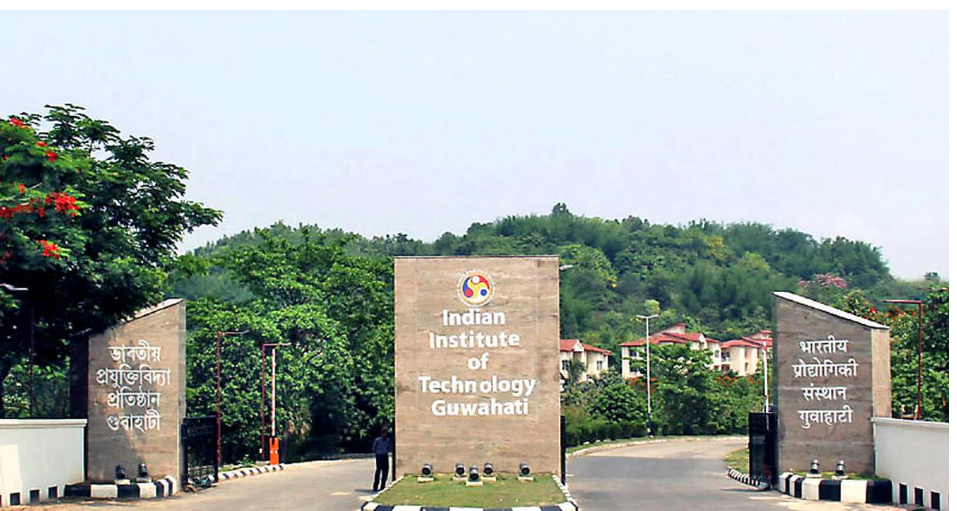IIT Guwahati’s:- In a significant milestone for veterinary medicine and animal health, the Indian Institute of Technology Guwahati (IIT-G) has achieved a groundbreaking feat by developing and transferring technology for the first anti-swine fever vaccine. This recombinant vector vaccine represents a major leap forward in the fight against classical swine fever (CSF) virus, offering new hope for the prevention and control of this highly contagious disease in pigs and wild boars. This article explores the scientific breakthrough achieved by IIT-G, the potential impact of the new vaccine, and the broader implications for animal welfare, agricultural sustainability, and public health.
IIT Guwahati’s Understanding Classical Swine Fever Classical swine fever, also known as hog cholera, is a devastating viral disease that affects domestic pigs and wild boars. It is caused by the classical swine fever virus (CSFV), a member of the Pestivirus genus. We delve into the epidemiology, clinical manifestations, and economic impact of CSF, highlighting its significance as a major threat to global pig farming industry and food security.
The IIT Guwahati’s Science Behind the Vaccine The development of the anti-swine fever vaccine by IIT Guwahati represents a significant feat of scientific ingenuity. We explore the innovative approach employed in designing the recombinant vector vaccine, which harnesses the power of genetic engineering to stimulate the immune system’s response against CSFV. Through the use of recombinant DNA technology, the vaccine targets specific antigens of the virus, providing a safe and effective means of protection for pigs and wild boar Advantages and Benefits of the Vaccine The introduction of the anti-swine fever vaccine holds immense promise for the livestock industry and agricultural sector. We discuss the advantages of the vaccine, including its efficacy in preventing CSFV infection, its potential to reduce disease transmission and mortality rates in swine populations, and its compatibility with existing vaccination protocols. Additionally, we highlight the economic benefits of vaccination, such as increased productivity, improved marketability of pork products, and enhanced biosecurity measures.
Transfer of Technology and Collaboration IIT Guwahati’s:-  for more information click on this link
for more information click on this link
IIT Guwahati’s Addressing Challenges in Disease Control While the anti-swine fever vaccine represents a significant step forward in disease control efforts, challenges remain in ensuring widespread adoption and implementation of vaccination programs. We explore the logistical and regulatory challenges associated with vaccine distribution, storage, and administration, particularly in resource-constrained settings. Additionally,IIT Guwahati’s we discuss the importance of surveillance, biosecurity measures, and public awareness campaigns in preventing disease outbreaks and containing the spread of CSFV. Decision to transfer the technology for the anti-swine fever vaccine underscores its commitment to translating scientific innovations into real-world applications. We examine the process of technology transfer and collaboration between academia, industry, and government agencies, highlighting the role of partnerships in accelerating the development and commercialization of veterinary vaccines. By fostering collaboration and knowledge sharing, IIT Guwahati aims to maximize the impact of its research efforts and promote sustainable solutions for animal health.
IIT Guwahati’s Future Directions and Global Impact The development of the anti-swine fever vaccine by IIT Guwahati has far-reaching implications for global animal health and welfare. We discuss the potential for international collaboration and technology transfer to enhance disease control efforts in regions affected by CSFV. Furthermore, we explore the broader implications of the vaccine for One Health initiatives, which recognize the interconnectedness of human, animal, and environmental health.
The achievement of IIT Guwahati in developing and transferring technology for the first anti-swine fever vaccine represents a significant milestone in the field of veterinary medicine and disease control. By harnessing the power of innovation, collaboration, and knowledge transfer, IIT Guwahati has demonstrated its commitment to addressing pressing challenges in animal health and agriculture. As the vaccine enters the market and reaches swine producers and veterinarians worldwide, it has the potential to transform the landscape of CSFV control and contribute to a safer, healthier future for pigs and humans alike. check the post




